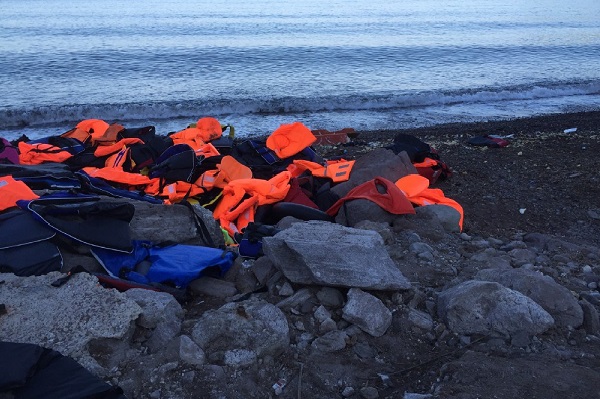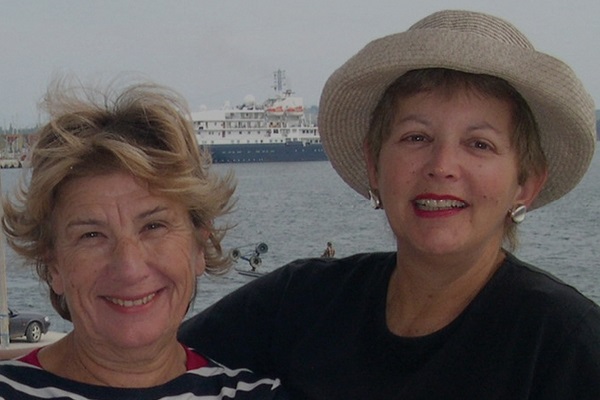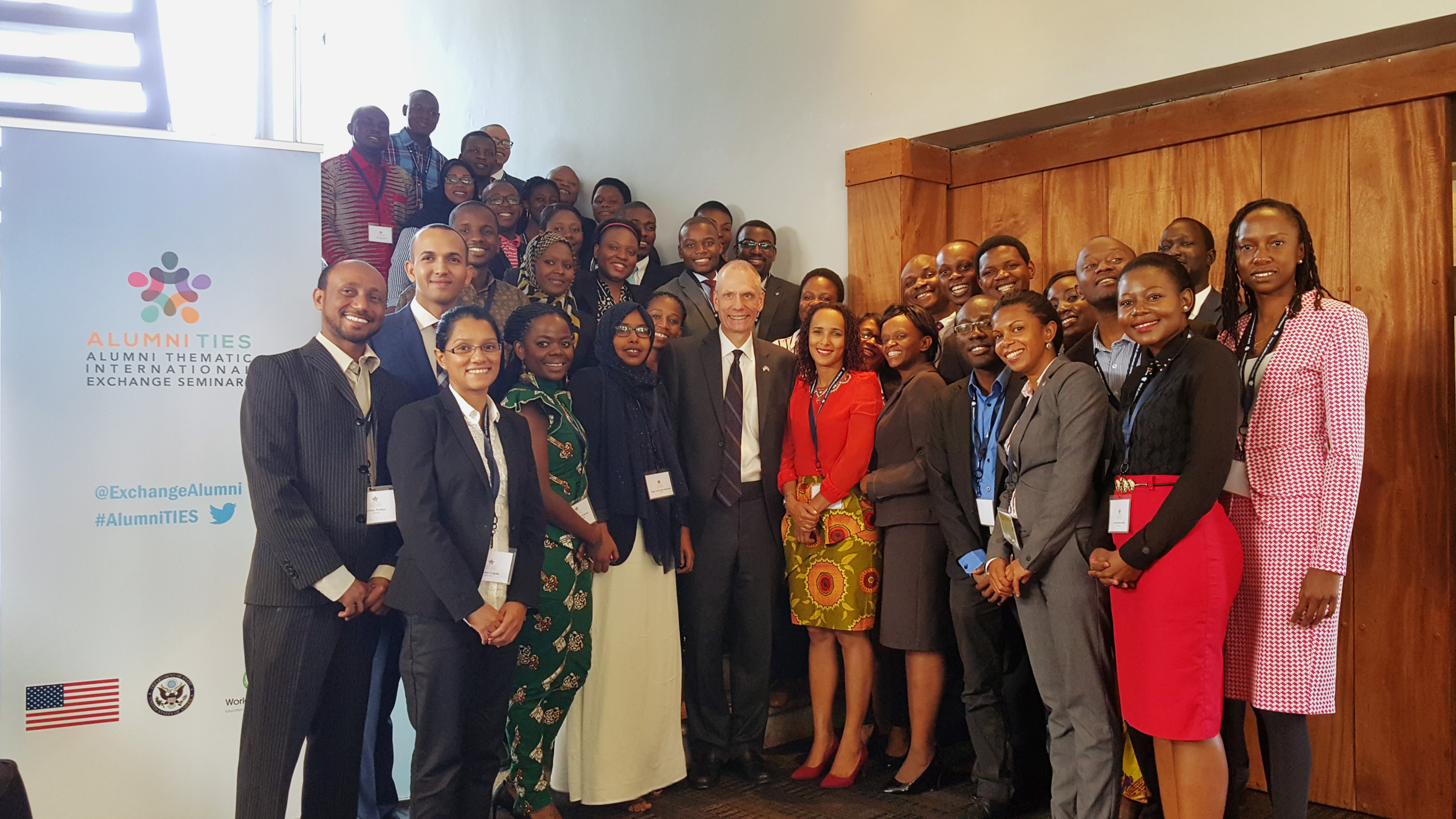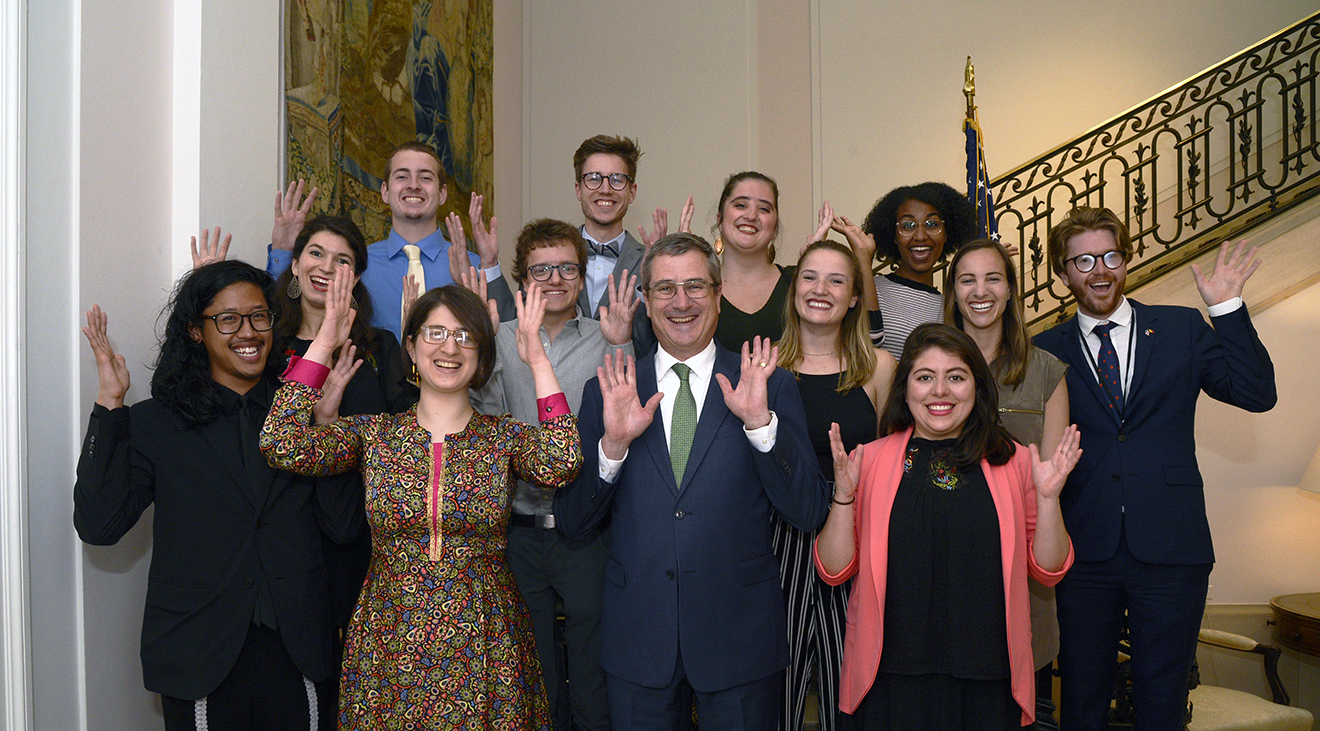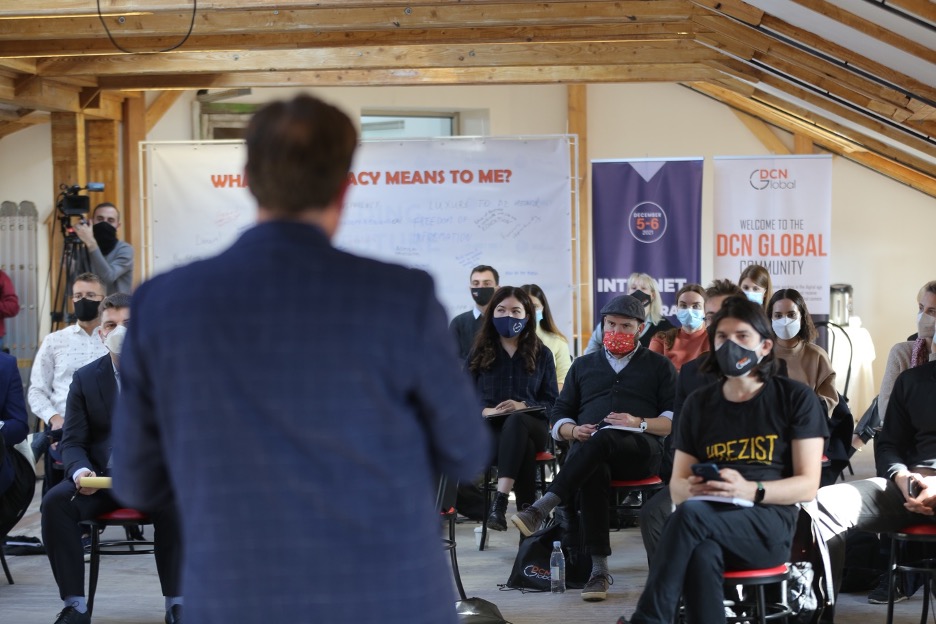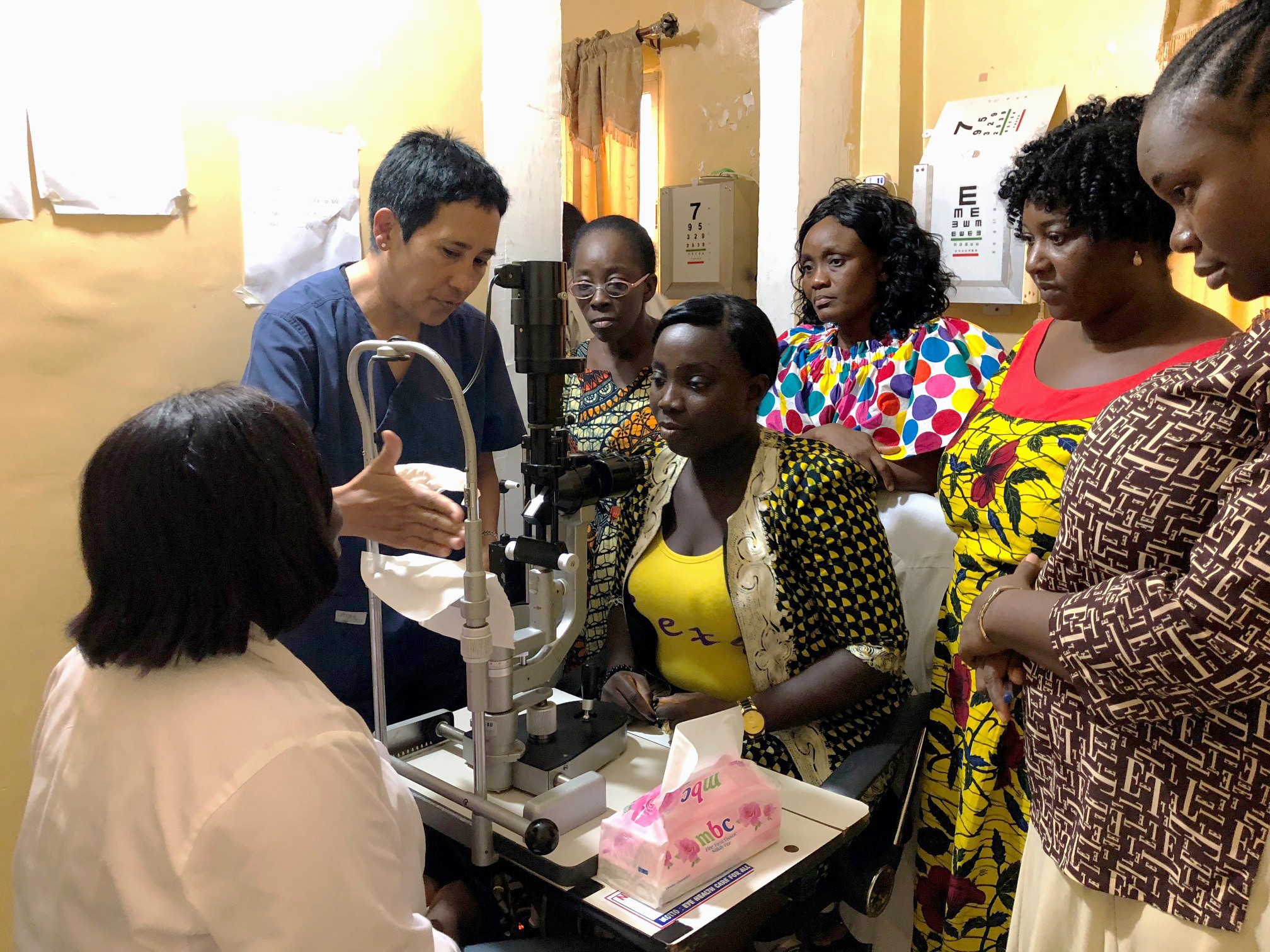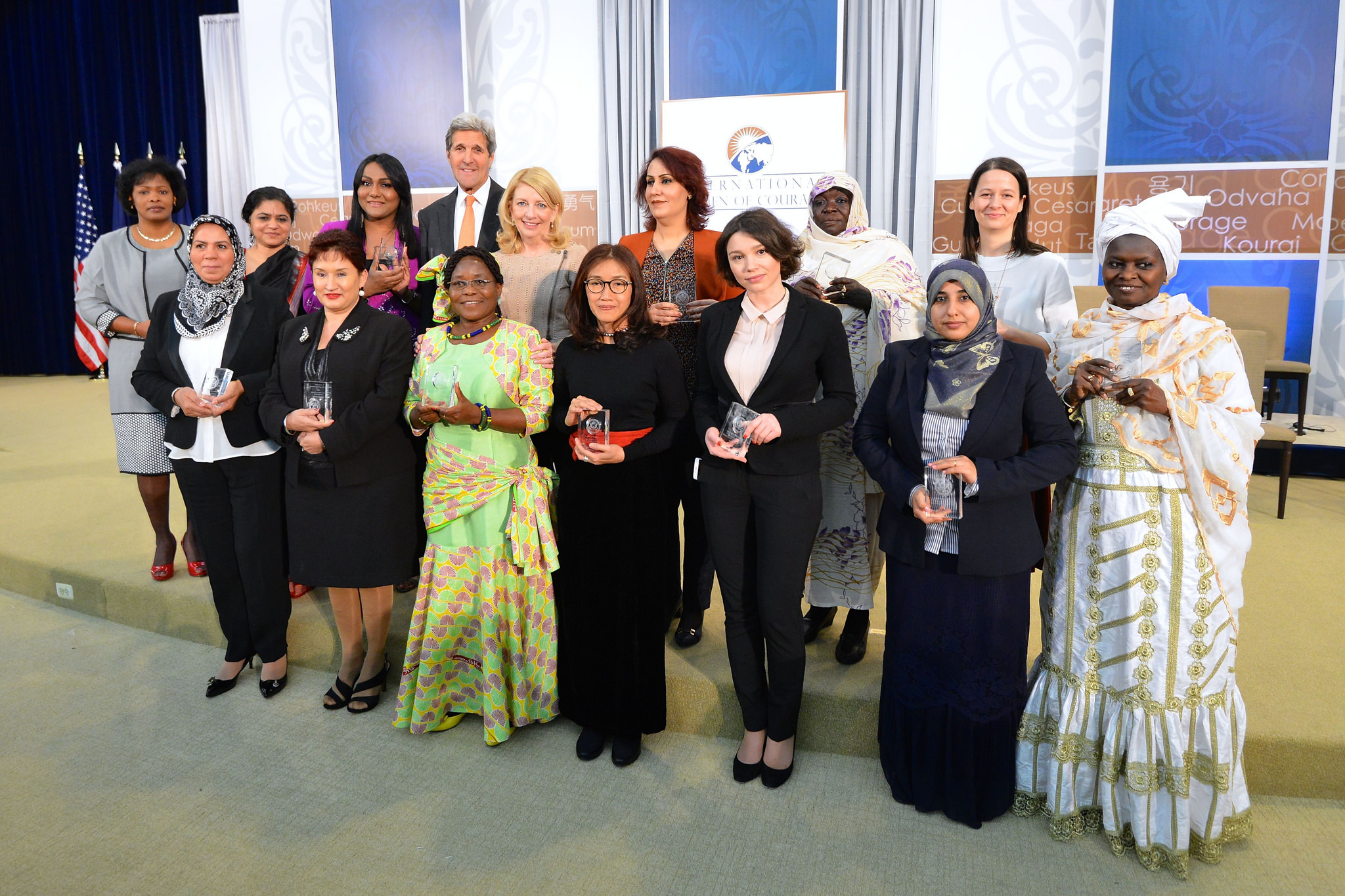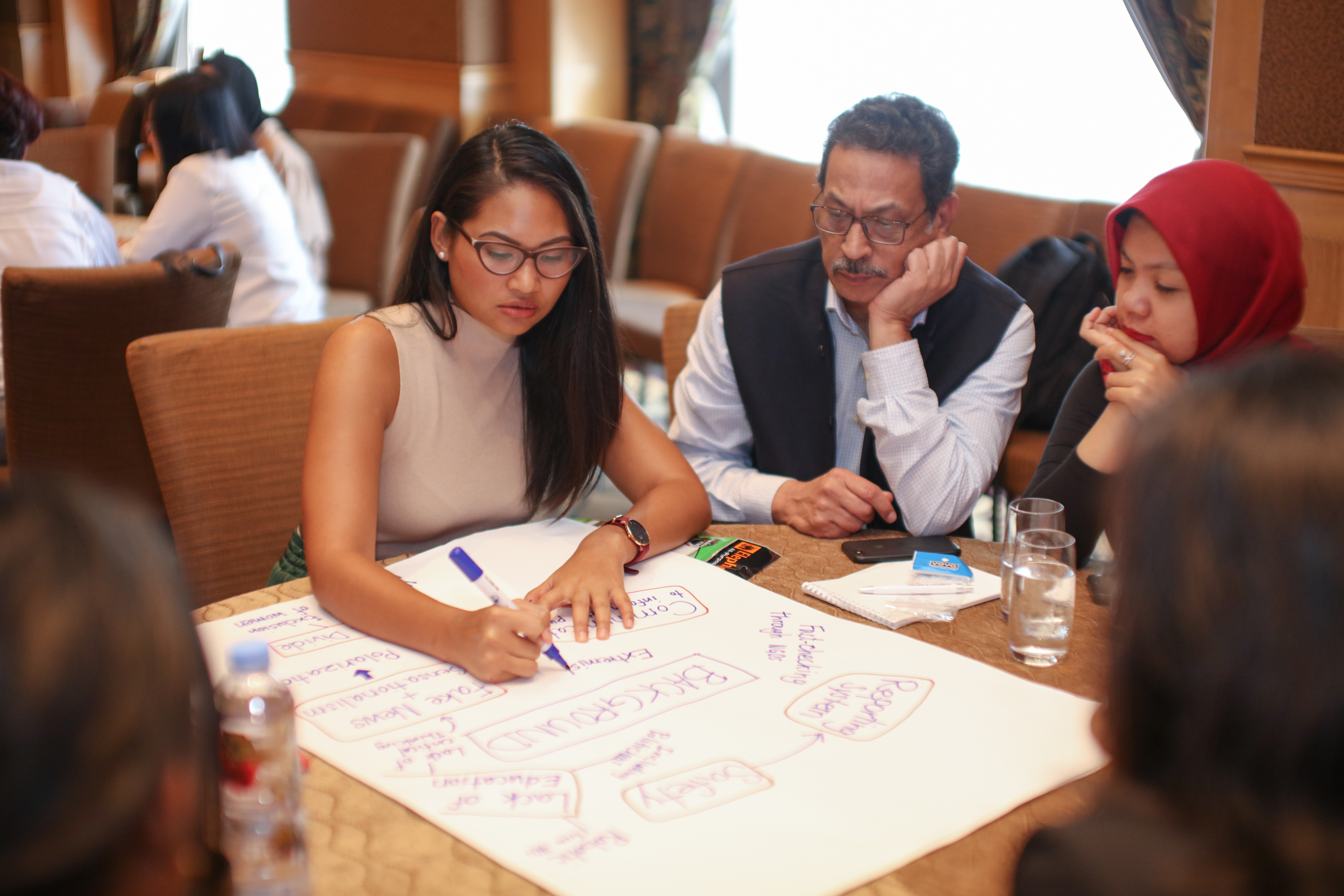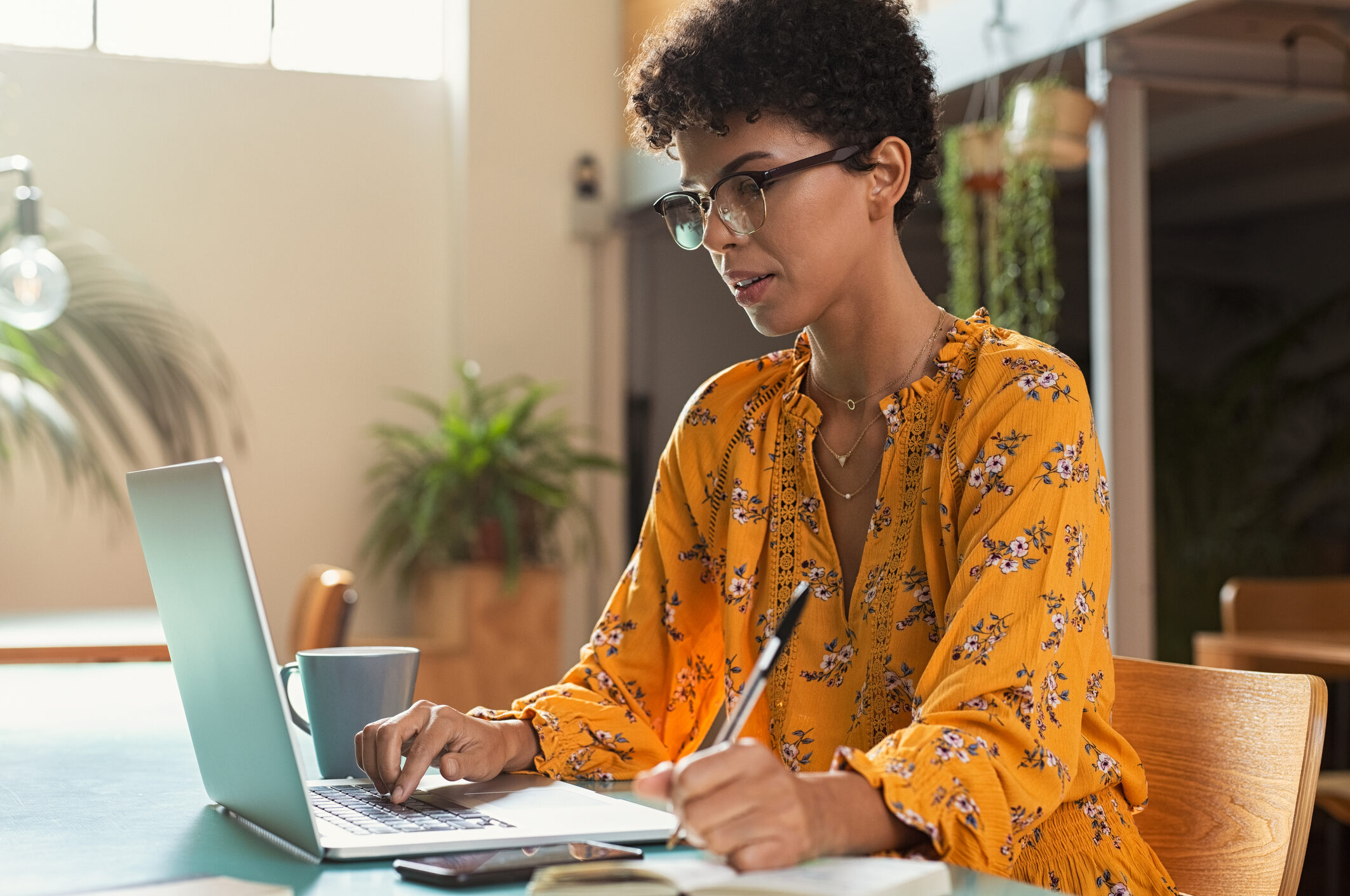-
What We Do
- WHERE WE WORK
-
About Us
 Welcome Message from Carol Jenkins
Welcome Message from Carol JenkinsFor more than 90 years, World Learning has equipped individuals and institutions to address the world’s most pressing problems. We believe that, working together with our partners, we can change this world for the better.
On my travels, I’ve had the opportunity to meet with many of those who have joined us in this mission. In Baghdad, we’ve trained more than 2,300 Iraqi youth who are already giving back at home. In London, our partners in the TAAP Initiative strongly believe that we are all responsible to practice inclusion. And in Vermont, our Experiment in International Living and School for International Training participants prove every day that they have the tools and the determination to change the world.
Please join us in our pursuit of a more peaceful and just world.
- Get Involved
Country: Greece
Helping a City Ease its Refugee Crisis
Joseph Bock has been involved in almost every type of humanitarian relief effort, from natural disasters to civil wars around the globe. He directed Catholic Relief Services’ programs in Pakistan, Jerusalem, and the West Bank and Gaza. As vice president of the American Refugee Committee he oversaw programs in Bosnia, Croatia, Guinea, Iraq, Kosovo, Liberia, Macedonia, Montenegro, Pakistan, Rwanda, Serbia, Sierra Leone, Thailand, Nepal, and Uganda.
Despite his vast experience managing disaster relief, he says he’s never seen a humanitarian crisis as raw and disturbing as the one he witnessed in Athens when he was a Fulbright Specialist in 2015.
Many of those arriving in the Greek port city fled the bloody civil war in Syria, oppression in Iran, and ongoing instability in Afghanistan. Eritrean, Ethiopian, and Somali refugees are also among the refugee population. They endured treacherous journeys in small, battered wooden or inflatable boats to reach Europe, often losing loved ones along the way.
“What these people had been through already and the predicament of the city was unbelievable,” says Bock, director of the International Conflict Management Program at Kennesaw State University in Georgia.
Bock traveled to Athens on a short-term Fulbright Specialist grant to support local municipal officials seeking advice on managing the influx of refugees and migrants.
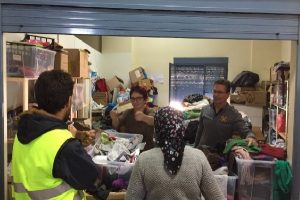
“Fulbright is known for academics and this was a humanitarian response,” continues Bock, who has Bachelor’s and Master’s degrees in social work, a Doctorate in international relations.
“I was very happy to be involved,” Bock added. “I think it’s a really good direction for Fulbright to go in.”
Founded in the aftermath of World War II, the Fulbright Program was established to foster mutual understanding between the U.S. and countries around the world. The Fulbright Specialist Program enables U.S. professionals and scholars to work on short-term projects overseas in conjunction with local host institutions.
Bock primarily worked on a strategic plan to help the city cope with the massive influx of refugees and migrants with the aim of reducing tensions and maintaining stability in Athens. The city faced a perfect storm: economic depression, an estimated 50% youth unemployment rate and 100,000 new arrivals, many without legal status. Bock’s plan addressed violence prevention and identified the benefits of language training, acculturation classes, student visas, and temporary work permits to help new arrivals.
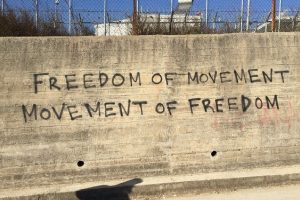
While in Athens, he skyped with his American students in Georgia about the situation on the ground. Bock also involved them in conceptualizing specific projects, such as how crowdsourcing can be used for identifying people in distress at sea.
“This is the new normal,” Bock says. “We need to get used to the fact that as the world warms up and social media allows people to communicate instantaneously more people will be on the move. We need to learn to adapt.”
As he sees it, the Fulbright Specialist Program is “on the cutting edge,” enabling academics to become practitioners and use their expertise overseas in crisis situations. He says he hopes the program continues to serve as a bridge between the two worlds.
“It is something that will inform what I do with the rest of my life,” Bock says. “I wish I could have done more good while I was there.”
“I think it exposes you to things you wouldn’t otherwise get exposed to. The real world pathos,” Bock explains. “To see the people coming off the boats in Lesvos. The people of Greece so generous. There is no way I could have understood this from reading the New York Times.”
The Fulbright Specialist Program was established in 2001 by the U.S. Department of State and the Bureau of Educational and Cultural Affairs (ECA) to enable U.S. professionals and scholars to work on short-term projects overseas in conjunction with local host institutions.
For more information about the Fulbright Specialist Program or to apply, please go to: https://fulbrightspecialist.worldlearning.org/the-fulbright-specialist-program/
How The Experiment Spanned the Ages For One Family
A lifetime connection to Greece was something Susan Schwartz couldn’t have predicted when she decided to spend a summer in the Mediterranean as part of The Experiment in International Living. “I picked Greece because in fourth grade we studied Greece for the entire year. I had a really good teacher,” she said.
The year was 1966, and at that time it took two weeks by ship to get there, which she says was part of the adventure for a young American student. She lived with a host family in Preveza, a small seaside city in northwest Greece, and traveled with other Experimenters around the country. But it wasn’t the days spent in Athens or the cultural heritage sites such as Olympia and Delphi that made such a deep and lasting impression on her. Instead, it was the warmth of Susan’s host family that has endured for nearly 50 years.
“As a teenager they were better than my real family. I didn’t want to go home,” recalled the Chicago native. “The parents treated me like their youngest daughter.”
Susan believes that what makes The Experiment special is the immersive nature of the program which centers on the homestay.
She’s not the only Experimenter in her family. Her daughter Emily went to Mexico when she was 16 and as a result of her experience went on to learn Spanish and Portuguese and majored in Latin American studies. She became a journalist and ran the Dow Jones news bureau in Rio de Janeiro, Brazil. Said Susan proudly, “It gave her her start. As a result of The Experiment she became a Latina for her whole life.”
At the request of the Vermont office, Susan hosted Helene de Koven, a French medical student from Colmar, while Emily was away. Now Susan, a retired book publisher, says she is trying to convince her teenage granddaughter to be an Experimenter as well.
This summer, a generous gift from the Schwartz family provided scholarships for several students from the Midwest to take part in The Experiment. She supported the program because she believes it encourages young adults to embrace a global world and creates lasting bonds between people.
Susan has been back to Greece many times over the years to visit her host family and stays in close touch with her Greek sister Elizabeth, who, she says with relief, finally got email. Susan’s Greek family even hosted a 75th-birthday celebration for her mother in Athens several years ago.
While she laments that there’s no Experiment program for adults, Susan jokes that she and her husband are looking forward to their upcoming “homestay” with her Greek family next month.
Alumni Thematic International Exchange Seminars
Participant Profile
Participants are alumni of U.S. government-sponsored exchange programs and vary in age and level of expertise, but all will be engaged in the seminar topic and highly motivated to create change in their communities.
Please consult the list of U.S. government-sponsored exchange programs below.
- U.S. citizen: https://exchanges.state.gov/us
- Non-U.S. citizen: https://exchanges.state.gov/non-us
Participant Selection
Alumni TIES participants who are not U.S. citizens are nominated by the U.S. Embassies or Consulates in their countries. Please contact the U.S. Embassy or Consulate in your country to learn how you can participate in Alumni TIES. Potential Alumni TIES participants who are living in the United States can apply for specific seminars managed by World Learning. The web link to the online application will be distributed widely by the Office of Alumni Affairs of the Bureau of Educational and Cultural Affairs.
All participants for Alumni TIES seminars are selected by the U.S. Department of State.
Program Design
Alumni TIES seminars take place in six world regions and the U.S.; each seminar is three to four days for small groups of alumni. The seminars include speakers, capacity development trainings, and alumni networking activities. Through the small grants initiative, alumni have the opportunity to take action and make a positive difference in their communities.
Learn More
Watch more videos about the Alumni TIES program.
Read stories from past participants about their experiences at the seminars or with their small grant projects on the Alumni TIES blog.
For information on programs for U.S. government-sponsored exchange program alumni visit the International Exchange Alumni website.
Alumni TIES is sponsored by the U.S. Department of State with funding provided by the U.S. Government and supported in its implementation by World Learning, in partnership with the Office of Alumni Affairs of the Bureau of Educational and Cultural Affairs (ECA).
Communities Connecting Heritage
Communities Connecting HeritageSM Program Impact
____
CCH Alumni Small Grants
At the conclusion of the program’s third year, the CCH team opened the Communities Connecting Heritage Small Grants to organizational and community member alumni from all three CCH cycles. The following projects were selected for CCH Small Grant implementation.
Kristina Llane (Albania)
Title of Project: Beekeeping Tradition as and Educative Tool
This project aims to preserve and share the importance of local beekeeping traditions in the Gjirokastra community of Albania. Kristina will work with elementary school students to cultivate youth interest in beekeeping’s cultural role in their community. Throughout the project, students and teachers will contribute to an educational book on beekeeping to that will equip teachers to continue sharing with future classrooms. The project will conclude with a panel discussion focused on protecting and preserving culture, tradition, and the environment in Albania.
Kalpana Gagdekar (India)
Title of Project: Connecting Community with Their Traditional/Heritage Cuisine
This project will explore and document the Chhara community’s traditional cuisines, which are experiencing a disappearing effect under modern global influences. Kalpana aims to document the rituals and heritage of Chhara cuisine through seven video interviews with Chhara women elders. The project combines modern technology with traditional food heritage and welcomes Chhara members of all ages to reclaim and rediscover their own heritage.
Mandala Theatre (Nepal) and Creative Connections (Connecticut, U.S.)
Title of Project: Hamro Sanskriti: Preserving Cultural Heritage through Participatory Theatre
The goal of this project is to provide youth in Connecticut and Nepal with a deeper connection to their own culture through student-led virtual workshops. The workshops – spearheaded by theater trainers in Nepal and Connecticut – will teach participatory theater techniques to 250 high school students and conclude with a model forum theater piece produced by students for the public.
Athar Lina (Egypt)
Title of Project: Rawya: The Water Women
Rawya: The Water Women is a Cairo-based project aimed at restoring the historically significant Sabil Um Abbas, a 19th century religious building and gathering place, into a usable community space once more. In addition to restoring aspects of the building, the project will connect U.S. and Egyptian women storytellers Donna Bryson and Chirine El Ansary to curate a storytelling experience of powerful 19th century women from their respective countries. Their work will culminate in a video exhibition that will be on display in the newly renovated Sabil Um Abbas for the local community to experience.
Bhasha Research and Publication Centre (India) and University of Northern Colorado (Colorado, U.S.)
Title of Project: Reclaiming Heritage II: Building Social Bonds and Bridges with Cultural Heritage
This project will utilize digital library resources at UNC to create and share cultural heritage “snapshots” with the broader community. These short videos will help immigrants and refugees in Colorado and indigenous peoples in India share their cultural heritage while building bonds with their local communities. The project will provide its participants with the ownership and platform to share their own heritage while paving a pathway for integration with others in their community.
Outside the Lens (California, U.S.)
Title of Project: Youth Tellers
Youth Tellers is a cross-cultural collaboration between Latinx youth in California and Bosnia-Herzegovina, relying on the concepts of past, present, and future to explore students’ complex cultural identities. Using digital media tools including photography, videography, and youth-facing communication forums like Discord, the project will culminate in a virtual exhibition showcasing the participants’ cultural heritage exchange with one another.
Explore the Story section on the right to learn more about the unique cultural heritage projects implemented since 2018.
Digital Communication Network
Examples of Past Digital Communication Network Projects
- Internet vs. Democracy Forum
- Roaring 20s #Digital Forum
- Combatting Disinformation Training Program
- Digital and Media Literacy for NGOs Training Program
- Tolerance and Coexistence 2.0 Forum
- Montenegro Digital Influencers Hub
- Humor and Games for Social Good Forum
Fulbright Specialist Program
What?
Link U.S. Experts and International Institutions
A program of the U.S. Department of State, Bureau of Educational and Cultural Affairs, the Fulbright Specialist Program is a unique opportunity for U.S. academics and established professionals to engage in two- to six-week consultancies at host institutions across the globe. Host institutions, including universities, non-profits, and other organizations, develop and submit projects for approval by the U.S. Embassy or Fulbright Commission in their country in wide-ranging academic and professional fields that build capacity and promote long-lasting linkages between individuals and institutions in the U.S. and abroad.
Why?
Address Priorities and Build Institutional Capacity at Institutions Around the World
An important companion to the traditional Fulbright Scholar Program, the Fulbright Specialist Program differs by providing short-term exchange experiences that tackle discrete, sometimes rapid response, projects. The Fulbright Specialist Program encourages participation of both university faculty and highly experienced non-academics, including legal experts, business professionals, public health practitioners, scientists, IT professionals, artists, and journalists. The program is a mutually beneficial opportunity for the Specialist who may not be available to leave their position for an extended period of time and the host institution which needs an experienced partner to jointly tackle a problem or examine an issue on a short-term basis.
How?
Become a Fulbright Specialist: Apply to Join the Roster
Fulbright Specialists are a diverse group of highly experienced, well-established faculty members and professionals who represent a wide variety of academic disciplines and professions. In order to be eligible to serve as a Fulbright Specialist, candidates must have significant experience in their respective professional field and be a U.S. citizen at time of application. Eligible disciplines and professional fields supported by the Fulbright Specialist Program are listed below.
- Agriculture
- American Studies
- Anthropology
- Archeology
- Biology Education
- Business Administration
- Chemistry Education
- Communications and Journalism
- Computer Science and Information Technology
- Economics
- Education
- Engineering Education
- Environmental Science
- Law
- Library Science
- Math Education
- Peace and Conflict Resolution Studies
- Physics Education
- Political Science
- Public Administration
- Public/Global Health
- Social Work
- Sociology
- Urban Planning
Interested candidates can find more information about the Fulbright Specialist Program and apply to serve as a Specialist at fulbrightspecialist.worldlearning.org. Candidates who meet all eligibility requirements will have their full applications reviewed by a panel of their professional peers. Candidates who are approved by the peer review panels will then join the Fulbright Specialist Roster. Individuals remain on the Specialist Roster for a three-year term and are eligible to be matched with a host institution’s project abroad during that tenure.
The following costs are covered for those Fulbright Specialists who are matched to a project: international and domestic airfare, ground transportation, visa fees, lodging, meals, and incidentals. A daily honorarium is also provided.
Become a Host: Bring a Fulbright Specialist to Your Institution
The Fulbright Specialist Program allows universities, cultural centers, non-governmental organizations, and other institutions abroad to host a leading U.S. academic or professional to work on diverse, short-term collaborative projects where the Specialist conducts activities which may include, but are not limited to:
- Delivering a seminar or workshop
- Consulting on faculty or workforce development
- Developing academic or training curricula and materials
- Lecturing at the graduate or undergraduate level
- Conducting needs assessments or evaluations for a program or institution
Institutions interested in hosting a Fulbright Specialist should contact their local Fulbright Commission or U.S. Embassy for country-specific requirements and deadlines.
Contact information for all participating countries is available on the fulbrightspecialist.worldlearning.org website.
For more information or questions about the Fulbright Specialist Program, please email [email protected].
The Fulbright Specialist Program is a program of the U.S. Department of State with funding provided by the U.S. government and administered by World Learning.
International Visitor Leadership Program
End of Year Report
Chosen by U.S. embassies worldwide to participate, distinguished professionals include:
- parliamentarians
- government officials
- entrepreneurs
- NGO leaders
- journalists
- academics
- arts administrators
- mid-career professionals
Programs focus on policy issues in areas such as:
- government
- international security
- foreign policy
- entrepreneurship
- economics and trade
- media
- women’s leadership
- education
- public health
- arts
- agriculture
- disability rights and inclusion
World Learning staff members design national itineraries, arrange logistics, set up meetings in Washington, DC, and coordinate the collaboration of U.S. Department of State program officers, interpreters and International Visitor Liaisons, and more than 85 community-based member organizations from the Global Ties U.S. Network who arrange local programs nationwide.
Participants
Most participants are mid-career professionals and emerging leaders, and for many, this is their first visit to the U.S. Groups are of varying sizes, from single visitors to groups of 25 or more. World Learning program staff work closely with their State Department counterparts to design a program customized to the project objectives and the visitors’ interests.
Participant Selection
IVLP candidates are selected solely by U.S. embassy personnel in each country. There is no application form. World Learning is a private sector partner of the U.S. Department of State; our role is limited to designing programs for participants once they arrive in the U.S. For further information regarding the program, please consult the U.S. Department of State’s website.
Program Design
A typical project includes up to a week of meetings in Washington, DC, to provide an orientation and overview of the theme and to introduce visitors to federal officials and agencies, national organizations, academics and think tanks, nonprofits and NGOs, and professionals in their specific field of interest. All projects include a briefing on the US federal system of government. Meetings may include panel discussions, site visits, workshops, individual interlocutors, job shadowing, or service opportunities. Visitors typically travel to an additional three or four cities in geographically diverse regions of the country; the itinerary may include a state capital and a small town to provide first-hand exposure to the great diversity that exists in the U.S. Also included in the program design are hospitality dinners, school visits, community service activities, and cultural events such as rodeos, state fairs, festivals, visits to national parks, or events that highlight some unique aspect of the region visited.
Participant Experience
“My recent experience in the IVLP program is so far the deepest ever for me to see and understand the full picture of what America as a country is like. I strongly believe this program will have a very long-term impact on my views about America and the world and to some extent it has already helped me to understand many long-time questions.” – Journalist from China
The International Visitor Leadership Program is sponsored by the U.S. Department of State with funding provided by the U.S. Government and administered by World Learning.
Leaders Lead On-Demand Program
Examples of past leaders Lead On-Demand Projects:
- Vietnam Legal Aid
- Refugee Integration and Resettlement in Central and Eastern Europe
- Sports Leadership Program for Colombia
- Mongolia Disability Rights Legislation and Implementation
- Promoting Open Educational Resources: Middle East and North Africa
- Tourism and Development in Serbia and Kosovo
- Religious Freedom and Interfaith Dialogue for Myanmar, India, Indonesia, Malaysia, Sri Lanka, and Thailand
- Emerging Leaders Exchange for Northern Ireland and the Republic of Ireland
- Environmental Advocacy for Mongolia
- Getting Connected Program for the South Pacific
- Civic Engagement Program for Moldova
- Disinformation and Fact Checking in Kenya




